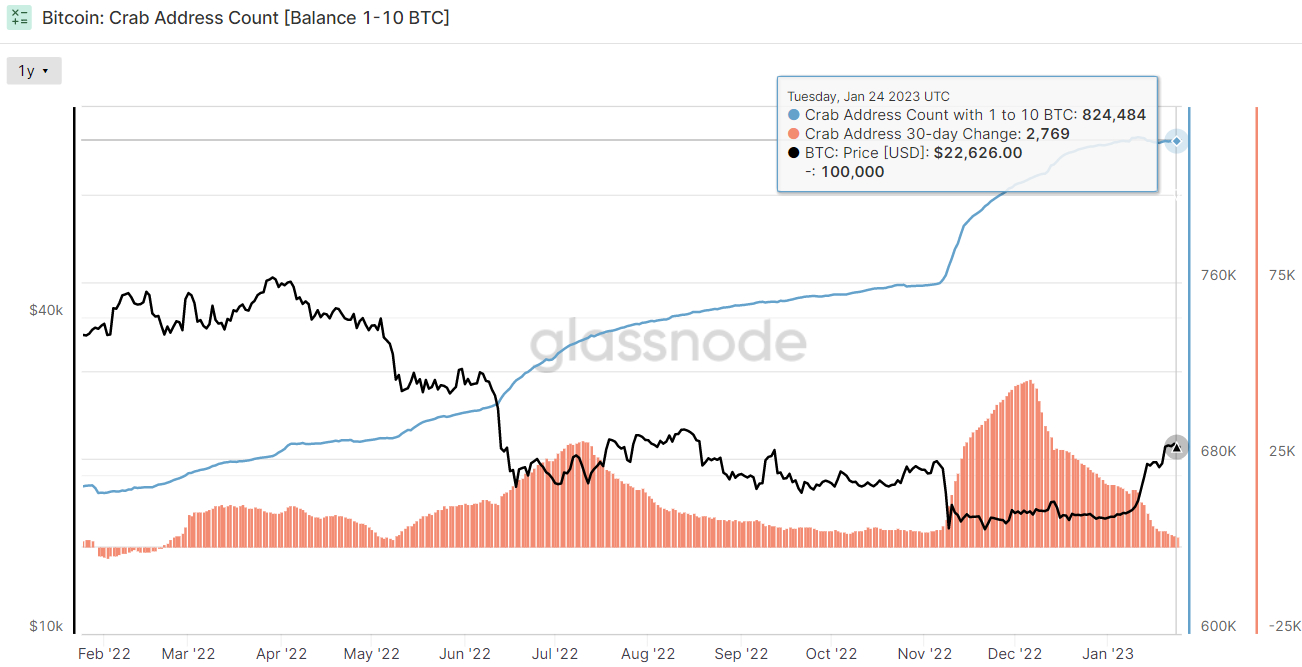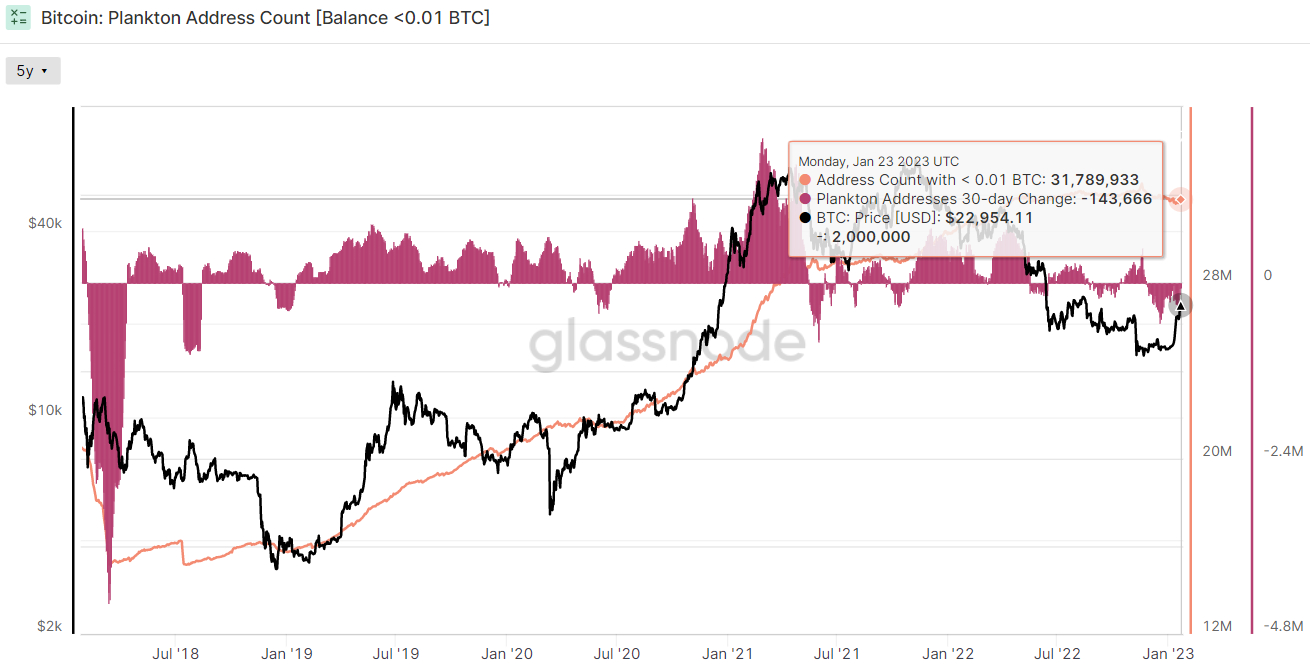Crab, Fish and Shark BTC Accumulation Stabilizes – What This Means For the Bitcoin Price
After rising sharply in number in wake of the Bitcoin price drop that was triggered as a result of the collapse of the FTX cryptocurrency exchange in early November, the number of so-called Crab, Fish and Shark cryptocurrency addresses has stabilized, data from on-chain crypto analytics firm Glassnode suggests.
Crab addresses are Bitcoin wallets with between 1 and 10 BTC and are generally assumed to be committed retail investors (or HODLers). Fish addresses hold between 10 and 100 BTC, while Shark addresses hold between 100 to 1,000 BTC. These two address cohorts are generally made up of high-net-worth individuals, trading desks and institutional-sized entities, according to Glassnode.

In wake of the FTX collapse, the number of Crab addresses jumped from around 760,000 to current levels of around 824,000. The 30-day change in Crab address numbers peaked at around 47,000 in early December but has since fallen to only a few thousand.

Over the same time period, the number of Fish and Shark addresses have jumped from 135,000 to 139,000 and 13,700 to 14,050 respectively. However, as has been the trend with Crab addresses, the 30-day rate of change in both has now dropped back to around zero.

What The Slowdown In Crab, Fish and Shark Address Accumulation Means for BTC Price
Mid to large-sized crypto investors, which include large retail investors, high-net-worth individuals, trading desks and institutions – generally viewed as a well-informed cohort – clearly used the post-FTX collapse-induced price drop as an opportunity to buy the dip. Bulls will say this is a show of confidence in Bitcoin as an asset class.
At the same time these cohorts were accumulating, the numbers of smaller Shrimp and Plankton addresses (with less than 1 BTC) began to stagnate/decline. This is a sign that less well smaller and likely informed investors were bowing out of the market, resulting in flows in BTC to the larger, better-informed investors.

Stagnation in the latter groups’ accumulation suggests that this trend has likely come to an end as Bitcoin’s price has rebounded in January. This could be viewed as an indication that small investor capitulation has eased. But Shrimp and Plankton address numbers have yet to start picking up again. Given that Bitcoin bull markets have historically been characterized by a surge in demand from small investors (and a subsequent surge in small address numbers), this suggests sentiment still has a long way to recover.

Many Bitcoin bulls are not worried. A whole host of on-chain and technical indicators are now screaming that the Bitcoin bottom for this market cycle may now be in. Data-driven crypto-focused Research Provider recently shared 6 on-chain metrics that show Bitcoin is currently a “generational long-term buying opportunity”.



